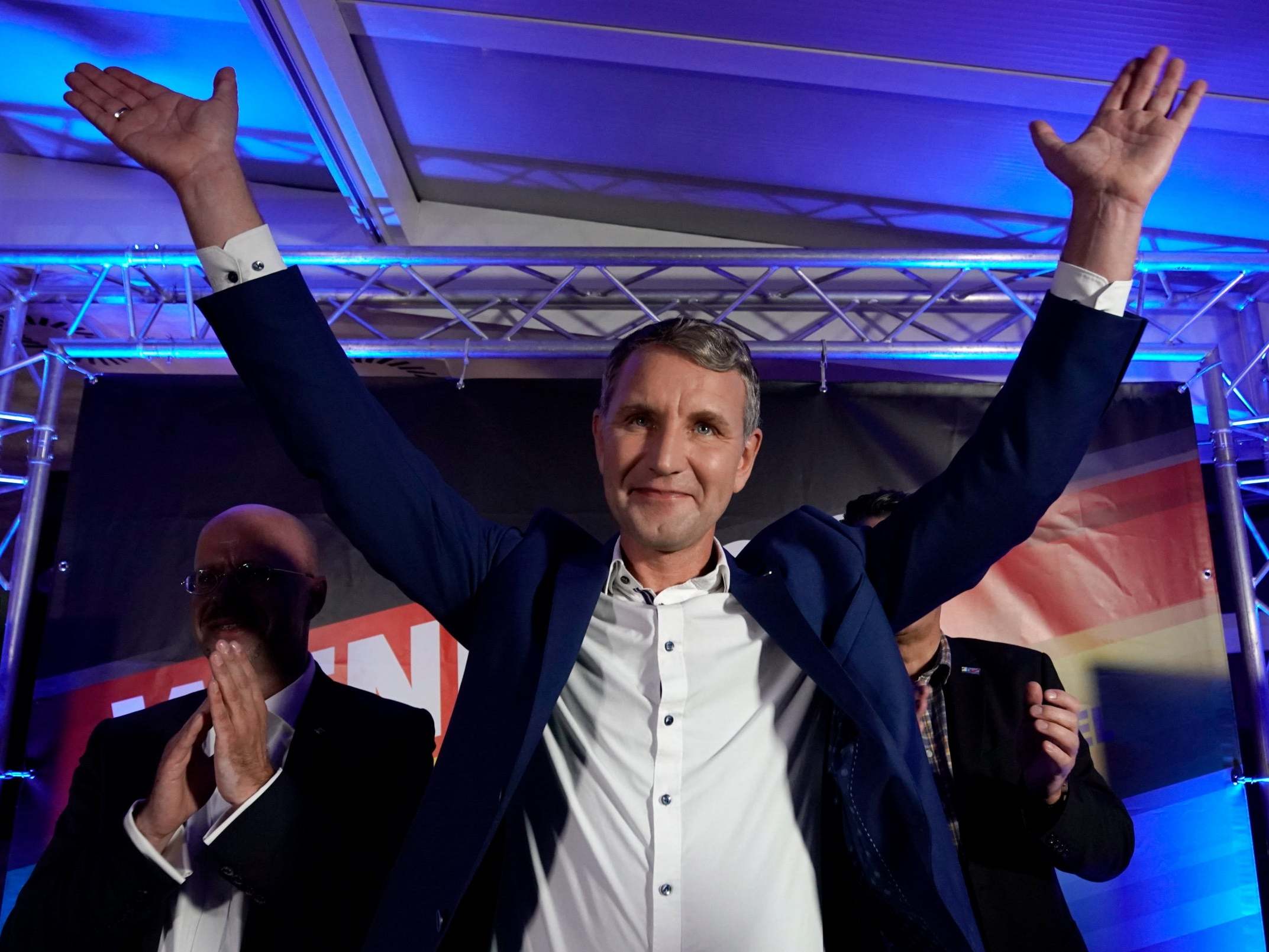Far-right AfD surge to second place in German state election, beating Merkel's party
Anti-immigrant party more than doubles share of vote to 23.5 per cent, say exit polls

Your support helps us to tell the story
From reproductive rights to climate change to Big Tech, The Independent is on the ground when the story is developing. Whether it's investigating the financials of Elon Musk's pro-Trump PAC or producing our latest documentary, 'The A Word', which shines a light on the American women fighting for reproductive rights, we know how important it is to parse out the facts from the messaging.
At such a critical moment in US history, we need reporters on the ground. Your donation allows us to keep sending journalists to speak to both sides of the story.
The Independent is trusted by Americans across the entire political spectrum. And unlike many other quality news outlets, we choose not to lock Americans out of our reporting and analysis with paywalls. We believe quality journalism should be available to everyone, paid for by those who can afford it.
Your support makes all the difference.The German far right won a higher share of the vote than Angela Merkel’s party in a regional election on Sunday, according to exit polls.
Alternative for Germany (AfD) was forecast to come second in the poll in the state of Thuringia with 23.5 per cent, more than double what it received five years ago.
It follows recent gains for the anti-immigrant party in the eastern states of Brandenburg and Saxony last month.
The AfD’s leader in Thuringia, Bjoern Hoecke, is a former history teacher who has described the Holocaust memorial in Berlin as a “monument of shame”. His statements are so extreme that even his own party members struggle to differentiate them from the writings of Adolf Hitler.
Mr Hoecke told supporters on Sunday that the AfD “will be a people’s party for all of Germany”, adding that the preliminary result was “a clear sign that a large part of Thuringia says this can’t go on, we need renewal ... This should be taken seriously.”
The left-wing Die Linke party, which has governed the region in coalition with the Greens and Social Democrats (SDP), won the highest share of the vote with 30.1 per cent while the German chancellor’s conservative Christian Democratic Union (CDU) came third with 22.1 per cent.
It marked a significant slump in CDU support compared to 2014, when the party won the highest share of the vote with 33.5 per cent.
The SPD also lost votes, coming forth with just over 8 per cent. It means that the existing “red-red-green” coalition is unlikely to be able to command a majority in state parliament.
A Die Linke minority government is said to be the most likely outcome, given that the CDU has ruled out a coalition with either them or the AfD.
Bodo Ramelow, who became Die Linke’s first state premier in 2014, said: “I see myself clearly strengthened. My party clearly has the mandate to govern, and I will take it up.”
Join our commenting forum
Join thought-provoking conversations, follow other Independent readers and see their replies
Comments